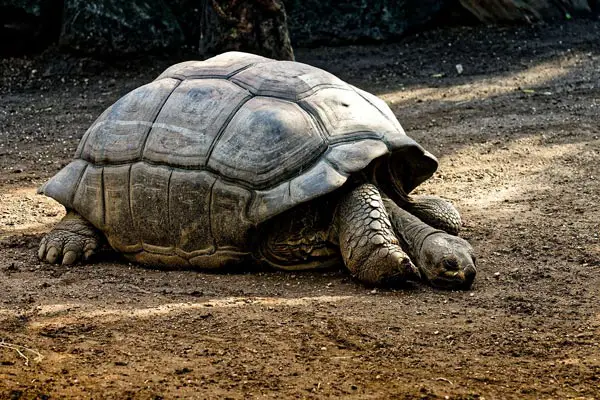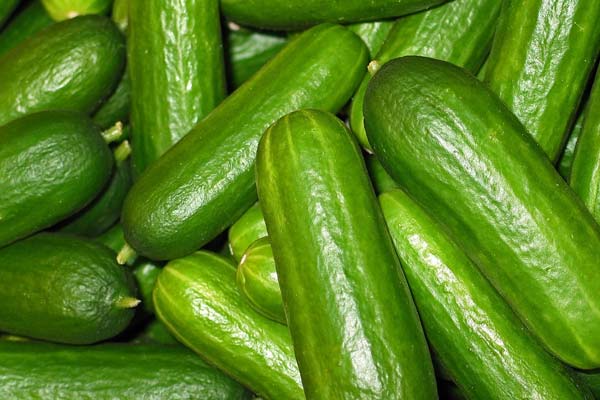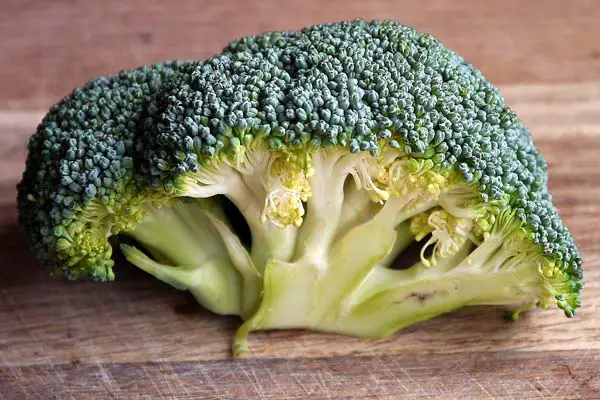How Often Do Tortoises Poop: the Difficult Answer to This Simple Question
Tortoises are very cute, social, and intelligent animals. More and more people are choosing to keep tortoises as pets. This is especially true for people who live in places where more common companion animals like dogs and cats may not be allowed.
But tortoises are not easy to care for and they can be just as smelly and messy as any dog or cat you’ve ever owned.
Tortoise poop is one of the prime indicators of your tortoise’s health and you will need to pay very close attention to it. In this article, we discuss how often tortoises poop and what to watch for.
How Often Do Tortoises Poop
Tortoises will poop more frequently when they are very little and their digestive tract is quite short. As a tortoise grows up and matures, you can expect to see larger poop less frequently.
The actual frequency of your particular tortoise’s poop will depend on the size, species, and daily diet.
Read on to learn more specifics about tortoise poop.
Learn About Tortoise Poop House Cleaning
This highly informative YouTube video clearly illustrates habitat cleaning and poop removal for tiny up to enormous tortoises.
If you buy or adopt a tortoise, tortoise poop will become a big part of your daily and weekly life. This is a good thing to think about if you are still on the fence about making a lifetime commitment to caring for one of these animals.
Tortoise Poop Frequency Based on Age
If you have ever kept another species of pet such as a dog or cat, you probably learned quickly that baby animals poop a lot!
Any baby animal will have a shorter gastrointestinal tract. Baby animals of any species will have to eat more frequently because they cannot store as much food in their stomachs for “later.”
And baby animals have a lot of growing and developing to do, which makes it harder to self-regulate pooping habits.
Hatchling tortoise poop
Hatchling tortoises, just like baby puppies or cats, often need a little help to poop regularly.
This helpful Tortoise Forum thread highlights the importance of soaking a hatchling tortoise – no matter what their species – to support regular elimination.
Hatchling tortoises may need to be soaked daily for 20 minutes in warmish water. This keeps the baby tortoise hydrated and helps them pass waste.
Hatchling tortoises are typically fed daily and soaked daily regardless of species, which can mean your hatchling tortoise will also poop (and pee) daily.
Juvenile tortoise poop
As your tortoise starts to grow up and get bigger, it is common for poop frequency to lessen.
In other words, your tortoise is getting larger and stronger, developing internally and also often altering their daily diet accordingly.
While hatchling tortoises may gravitate towards soft, easy to bite and chew foods, larger juveniles and adults will have the strength to tackle tougher and more fibrous or dense foods and also to skip a meal with no adverse effects.
So where your hatchling tortoise may have been peeing and pooping daily, a juvenile tortoise may go two or three days between bowel movements.
Adult tortoise poop
Tortoises are cold-blooded reptiles that grow and mature much more slowly than do warm-blooded animals.
So where a puppy might be considered an adult at the age of one year old, it typically takes five to 10 years before a tortoise becomes sexually mature and is able to reproduce.
As Tortoise Tracks points out, some tortoise species take even longer to reach adulthood – 14 to 20 years is not uncommon!
Another fact many people don’t realize is that tortoises do not stop growing in adulthood. Because every metabolic function works more slowly in cold-blooded tortoises, they can keep growing incrementally throughout their lives.
This is easier to see in the very large tortoise species such as Sulcata and Aldabra tortoises.
As this Reddit feed showcases, finding a truly trained and experienced exotic species veterinarian can be tough. Many veterinarians know very little about the care needs and husbandry of each individual tortoise species.
This means the best way for you to tell if your tortoise is pooping regularly is to keep your own poop log and compare notes with other keepers who are caring for the same species of tortoise.
Over time you will start to get a much better sense of what is normal for your tortoise. In most cases, adult tortoises that are healthy and eating an appropriate diet for their species will poop anywhere from daily to once per week.
Senior tortoise poop
Senior tortoises of any species will sometimes begin to experience a metabolic slowdown that decreases appetite and poop frequency.
For example, perhaps in adulthood your tortoise was pooping every two days and now is pooping every three to four days.
It is very important to make sure your tortoise stays hydrated (even for desert/arid species) around the time you expect to see tortoise poop.
Tom’s Bird Feeders explains that a constipated tortoise may exhibit less appetite. You may see straining and other visible signs of discomfort.
If soaking your tortoise does not get things moving again, it is time to seek out a trained exotic species veterinarian to test for parasites, impaction and other hidden dangers.
Tortoise Poop Frequency Based on Species
As this popular Tortoise Forum owner thread illustrates, it is vital to learn about the poop frequency for the species of tortoise you are keeping.
Since there are so many variables that can impact poop frequency and amount, the only way you can establish a baseline of health for your tortoise is to learn everything you can about the specific species you are caring for.
Tortoise Poop Frequency Based on Diet
Tortoises of different species have dramatically different dietary needs.
While most desert/arid tortoise species subsist on a plant-based diet of hay, grasses and the occasional tidbit of fruit or vegetable, tropical forest/tortoise species may require a moisture-rich diet of succulents like cactus, fruits and even insects or worms.
According to Sciencing, tortoises often experience seasonal dietary shifts based on what food sources are available during different times of year.
Some keepers like to feed their companion tortoises based on how the animal would eat seasonally in a wild setting.
This can cause changes in poop texture, color, and frequency.
As well, a tortoise species that eats mostly hay and grasses will have very different poop consistency and frequency than a tortoise species that eats mostly fruits and bugs.
There is no substitute for learning about the care needs and husbandry requirements for the specific species of tortoise you are keeping.
This will then influence how often and how much your tortoise poops at each life stage.
When to Worry About Tortoise Poop
As Tortoise Trust points out, each tortoise species has very different dietary requirements.
What your tortoise needs to eat to stay healthy will depend on where they are from as well as their age and life stage.
Tortoises will frequently eat their own poop (called “coprophagy”) as a way to glean extra nutrition in lean times. They may even eat the poop of other species for the same reason. This is not usually something to worry about.
However, poop irregularities such as constipation or diarrhea may point to a deeper systemic problem and should always be evaluated by a trained exotic species veterinarian.







